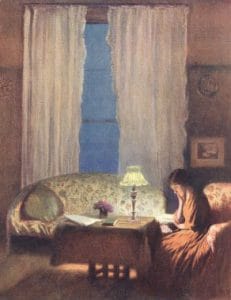Voting was swift and strong on my latest website poll and overwhelmingly in favour of the winning response, with 53% of respondents in agreement.
But before we get to that:
To give voice to people who don’t read series novels, one of the possible responses was: I don’t read series. This is what I got…
I don’t know if this means (a) only series readers visit my website and/or poll, (b) only series readers bothered to participate, (c) there are no readers anywhere who have not at least tried to read a series, or (d) I had to find somewhere to use this picture of a goose egg. I’d like to think (c) is the way to go on this one.
Amongst the possible answers, the poll provided three options for a defined length of series as being the most preferable:
(1) 3 to 5 books
(2) 5 to 10 books
(3) 10 to 15 books
At the very bottom of the voting pile, registering only 3% of the votes, was the response that opted for the longest ‘defined’ series length. If you had to come up with a number, only 3% of the readers thought a series should last between 10 to 15 books.
6% thought 3 to 5 was the perfect series length.
A much larger 12% decided 5 to 10 books was just right.
I expected the next response to register much higher.
Only 7% of voters said they don’t care how long a series is, as long as there is a defined/planned-for end so they can prepare themselves for it.
The next response gave me a warm feeling in my writer’s heart…a response unabashedly fueled by readers who love their books and love the characters in their favourite series.
14% of voters prefer their series of choice to go on and on and on. Which of us hasn’t felt that twinge (or more) of sadness when turning the last pages of the final book in a series we’ve followed for years? These ‘affairs’ with books tend not to be fleeting, often outlasting other important relationships – emotional, romantic, or otherwise – of varied significance and intimacy. In some regards we get to know fictional characters in ways that transcend how we know our own friends and family. We become invested. With these characters we laugh and cry, witness life, participate in adventures, glimpse the astounding, the unusual, sometimes the otherworldly. Who wants that to stop?
So what were 53% of poll respondents in agreement on? Which answer above all aforementioned made the most sense to them?
53% of people said: “I don’t care how long a series is as long as the books are good.” Simple. Straight forward. Makes good sense, I’d say.
From a writer’s perspective, the secret – an oftentimes dreadfully painful realization – is knowing when its time to step away. It isn’t when the books become not ‘good’. It’s before.
The new poll running on my website right now asks a question I’ve long wanted to ask readers. It’s about those subsidiary, secondary characters that pop up in almost all books. They play (or can play) important roles especially in series novels. What’s Arthur Conan Doyle’s Sherlock without Watson? Alexander McCall Smith’s Mma Ramotswe without Grace Makutsi? Louise Penny’s Inspector Gamache without Jean-Guy Beauvoir? Ellen Hart’s Jane Lawless without Cordelia?
Cast votes for your top three answers to the question: I like a novel’s subsidiary character(s) to…
by clicking here http://anthonybidulka.com/
Until next time…










